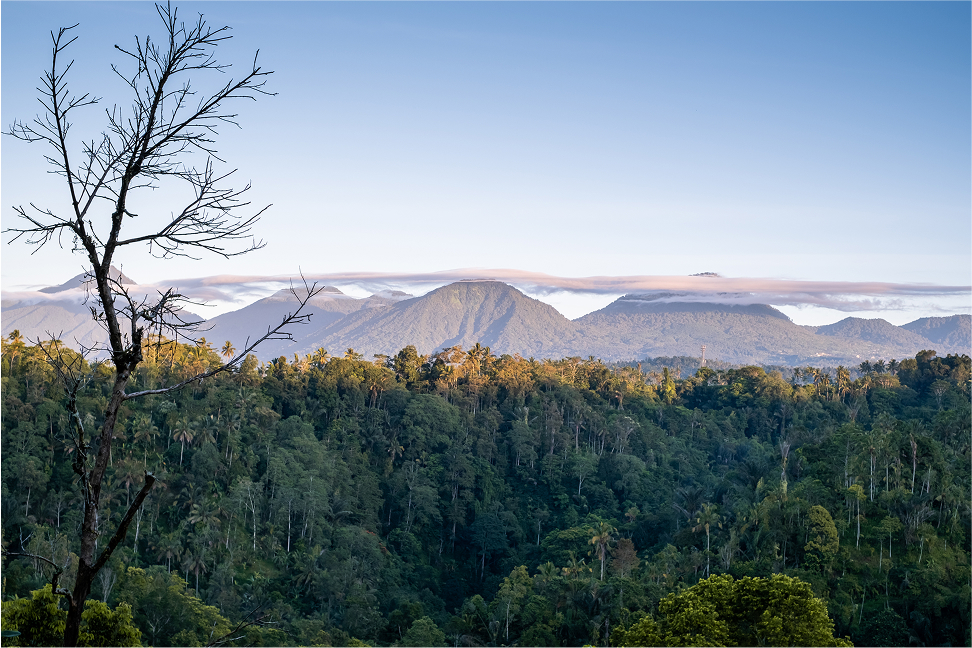"The real voyage of discovery consists not in seeking new landscapes, but in having new eyes." - Marcel Proust
In a world obsessed with barriers, there exist rare sanctuaries where humanity and nature blur together like mist lifting off a Balinese valley at dawn. Such places demand not merely our presence but a complete reimagining of our relationship with the universe itself. It was with this understanding that I found myself at Buahan, a Banyan Tree Escape - a visionary creation of Ho Kwon Ping and Claire Chiang, who together, after Ho's experiences traversing the globe as a journalist, developed a profoundly different perspective on hospitality, one that would eventually position Banyan Tree among the world's most distinguished luxury brands.
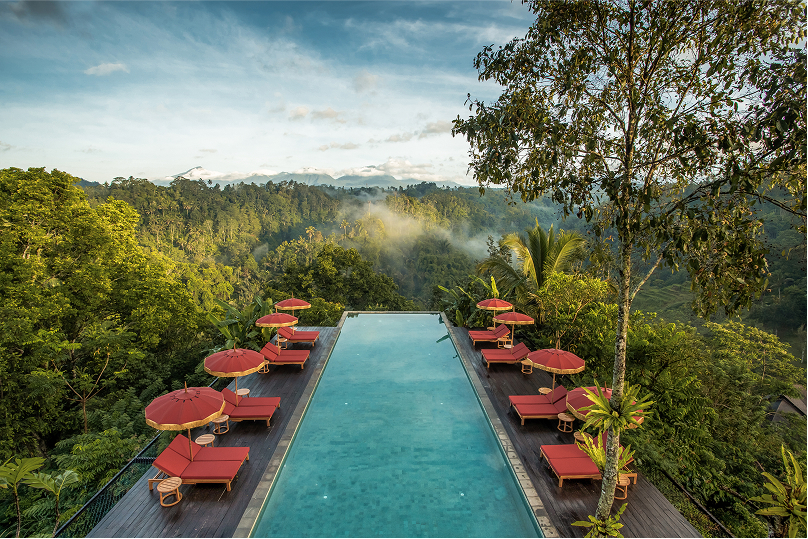
This sanctuary, brilliantly conceived by architect Gede Kresna of Rumah Intaran, was originally intended as the owners' personal retreat - a telling detail that explains its intimate, soulful character. The revolutionary concept of "no walls, no doors" transcends architecture to become a metaphor for consciousness gently stirred awake.
The journey begins with surrender. As I stepped into my villa - one of only sixteen scattered across this jungle sanctuary in Ubud's verdant hinterland - I realized that what makes Buahan extraordinary isn't what has been added, but what has been mindfully omitted. Here, luxury arises not from what is present, but from the bravery to let go.
The journey begins with surrender. As I stepped into my villa - one of only sixteen scattered across this jungle sanctuary in Ubud's verdant hinterland - I realized that what makes Buahan extraordinary isn't what has been added, but what has been mindfully omitted. Here, luxury arises not from what is present, but from the bravery to let go.
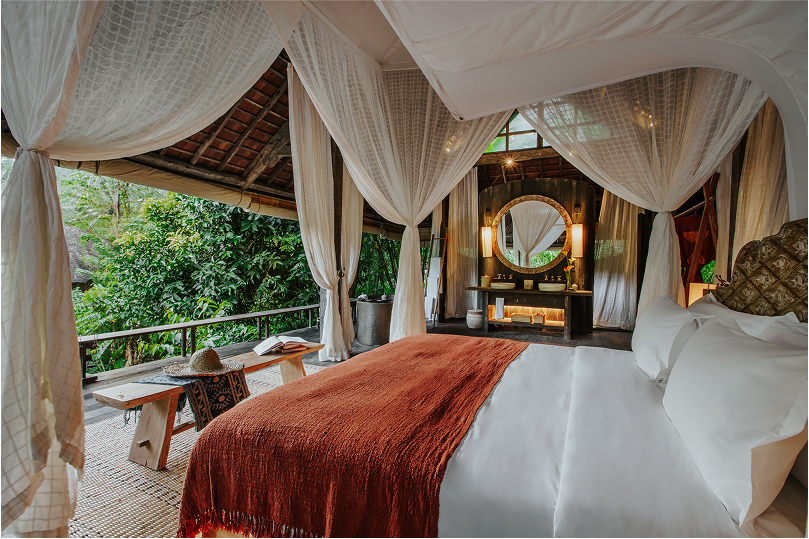
Yet this apparent minimalism conceals exquisite attention to detail. Though open to the elements, each villa provides sublime comfort. The bed, enveloped in a protective mosquito canopy, houses an ingenious climate control system within its frame, creating a microclimate of perfect comfort. The sheets - gossamer silk against the skin - speak of sensuous luxury, while handcrafted bath amenities transform daily rituals into sensorial ceremonies. On the terrace, a wood-fired copper tub awaits evening contemplation beneath star-scattered skies, the crackling fire offering both warmth and primal comfort.

Sleep transforms into a different species of experience when the night breeze carries the whispered secrets of ancient banyan trees brushing softly against your dreams. I woke before dawn on my first morning, disoriented momentarily by the lack of distinction between "inside" and "outside," before realizing that this delicious confusion was precisely the point.
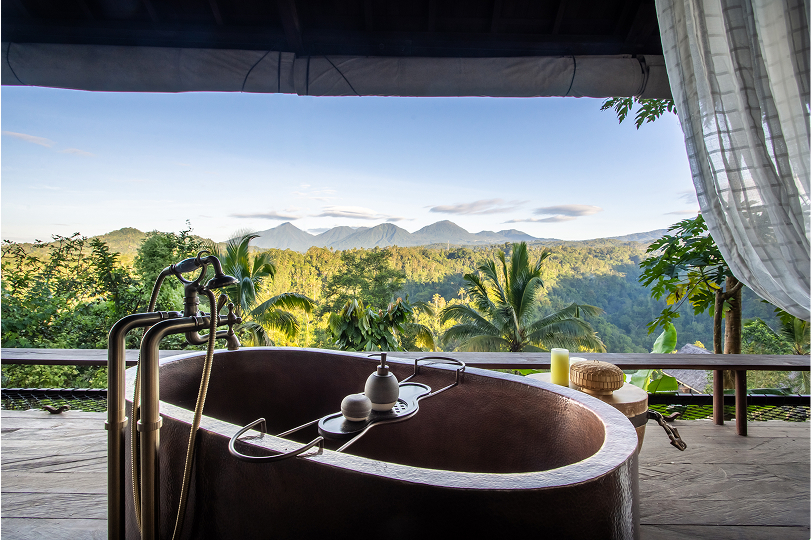
From my private pool, perched on the edge of wilderness, I watched Bali's seven peaks emerge from the darkness, their silhouettes not landmarks, but ancient sentinels, keepers of the island's whispered lore. At Buahan, you don't simply observe such vistas - you become absorbed into their narrative.
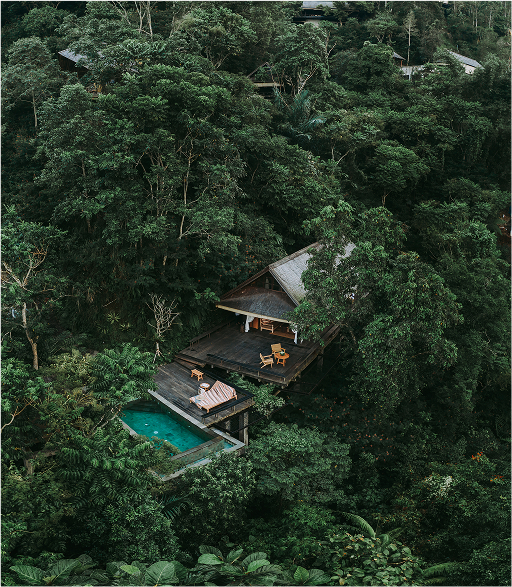
The resort's culinary philosophy, centered around the "Open Kitchen," transcends the typical farm-to-table concept. Ingredients sourced within a one-hour walking radius create meals that are not just nourishment, but a way of tasting the land itself. The Executive Chef personally consulted about my preferences each morning, crafting personalized offerings while introducing me to revelations like the menu “Taste of Guling” - traditional pork prepared with ceremonial reverence - and a coconut milk soup alive with local spices, its memory still lingering on my palate. The vegetarian menu rivals that of any wellness clinic globally, yet possesses a soulfulness often lacking in clinical health cuisine.
One evening, as fireflies performed their bioluminescent ballet around the open dining area, I realized I was savoring not just food, but the land itself - knowing it in the most intimate way. In my villa, a treasure chest filled with fragrant dried local flowers and small envelopes (Pan Balang Tamak) invited me to send scented postcards to loved ones - a poetic way of sharing this sensory journey.
One evening, as fireflies performed their bioluminescent ballet around the open dining area, I realized I was savoring not just food, but the land itself - knowing it in the most intimate way. In my villa, a treasure chest filled with fragrant dried local flowers and small envelopes (Pan Balang Tamak) invited me to send scented postcards to loved ones - a poetic way of sharing this sensory journey.
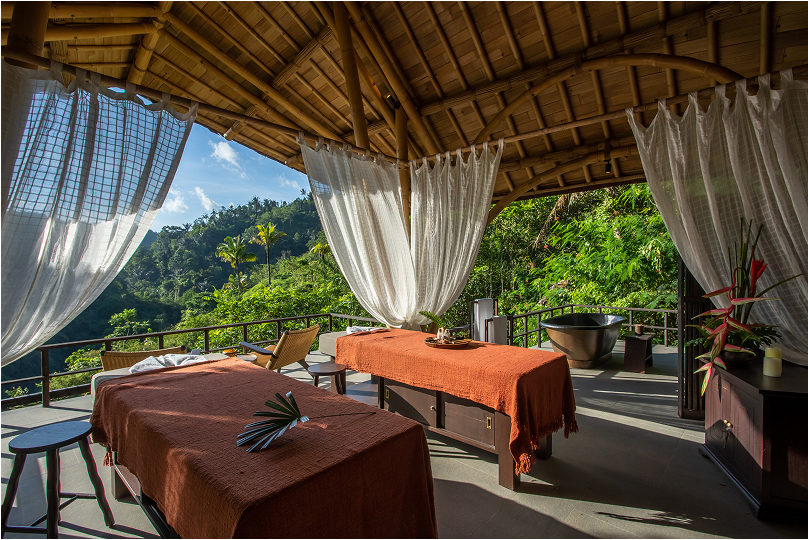
The true alchemy of Buahan lies in how it rewires perception. By day four, I found myself noticing subtleties previously invisible: the shifting accents of the wind as it moves through different leaves; the specific quality of morning light as it fractures through dew-laden spider webs; the behavioral patterns of jungle creatures who, no longer separated by artificial barriers, begin to accept human presence with cautious curiosity.
What elevates Buahan beyond mere architectural innovation is its human element. Under female management, the resort radiates a gentle feminine energy that permeates every interaction. Staff members are embraced not as employees but as family, granted freedom to express creativity and engage genuinely with guests. This approach manifests in service that rivals ultra-luxury establishments, yet feels deeply personal and authentic. You sense their joy - work transformed into artistic expression.
What elevates Buahan beyond mere architectural innovation is its human element. Under female management, the resort radiates a gentle feminine energy that permeates every interaction. Staff members are embraced not as employees but as family, granted freedom to express creativity and engage genuinely with guests. This approach manifests in service that rivals ultra-luxury establishments, yet feels deeply personal and authentic. You sense their joy - work transformed into artistic expression.
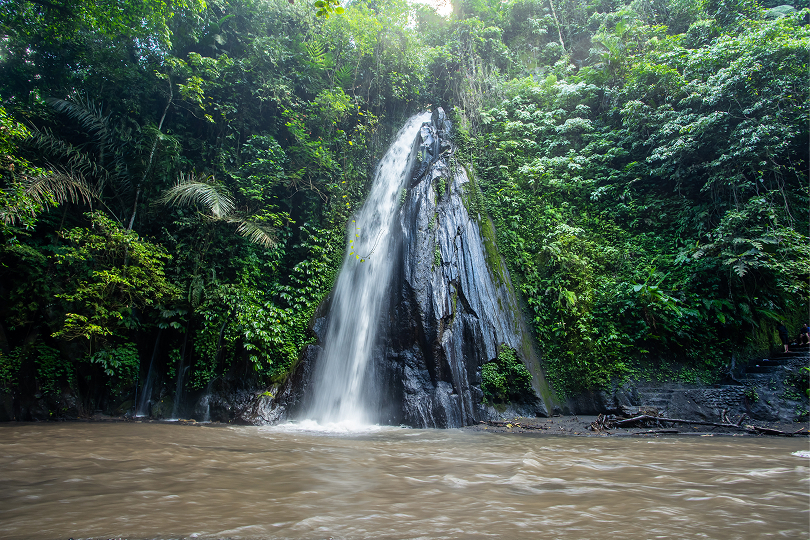
Perhaps Buahan's most profound offering is access to experiences typically hidden from travelers. I descended to the resort's private waterfall by the river for a traditional ceremony with a local priest. In perfect solitude, as if nature had been created solely for this moment, I released negative emotions into the cascading waters, making offerings that connected me to centuries of Balinese spiritual practice. The resort also arranged a visit to a village healer who read palm leaves with uncanny accuracy, offering life guidance that seemed drawn from intimate knowledge of my innermost self.
The sustainability achievements that have earned Buahan its EDGE green certification and multiple accolades from publications like Condé Nast Traveler aren't mere ecological credentials but expressions of a deeper philosophical position - that luxury need not oppose awareness, but deepen it. Even the incense sticks placed throughout the villa serve dual purposes - repelling insects while releasing fragrance that harmonizes with the jungle's own perfume.
By week's end, I understood that what Buahan offers isn't escapism but its opposite: a rare opportunity for complete presence. The Balinese concept of sekala and niskala - the seen and unseen worlds existing simultaneously - finds perfect architectural expression here. Without walls to delineate boundaries, the visible and invisible realms merge in quiet harmony, as though they were never truly separate, creating a space where transformation becomes not just possible but inevitable.
As I reluctantly prepared for departure, watching mist rise from the valleys below my villa one final time, I realized that Buahan had altered something fundamental in my perception. The radical openness of this place had worked subtle changes on my consciousness, dismantling not just the physical boundaries between inside and outside, but the conceptual ones that separate self from world.
Some destinations change your Instagram feed; others change your perspective. Buahan belongs to that rarest category: places that change your relationship with existence itself. In removing walls and doors, this extraordinary sanctuary does something far more significant - it removes the arbitrary partitions we place between ourselves and the living world, inviting us into a more authentic, vulnerable, and ultimately meaningful mode of being.
This, I realized, is the true luxury of our age: not more, but less. Not accumulation, but dissolution. Not barriers, but their beautiful absence.
The sustainability achievements that have earned Buahan its EDGE green certification and multiple accolades from publications like Condé Nast Traveler aren't mere ecological credentials but expressions of a deeper philosophical position - that luxury need not oppose awareness, but deepen it. Even the incense sticks placed throughout the villa serve dual purposes - repelling insects while releasing fragrance that harmonizes with the jungle's own perfume.
By week's end, I understood that what Buahan offers isn't escapism but its opposite: a rare opportunity for complete presence. The Balinese concept of sekala and niskala - the seen and unseen worlds existing simultaneously - finds perfect architectural expression here. Without walls to delineate boundaries, the visible and invisible realms merge in quiet harmony, as though they were never truly separate, creating a space where transformation becomes not just possible but inevitable.
As I reluctantly prepared for departure, watching mist rise from the valleys below my villa one final time, I realized that Buahan had altered something fundamental in my perception. The radical openness of this place had worked subtle changes on my consciousness, dismantling not just the physical boundaries between inside and outside, but the conceptual ones that separate self from world.
Some destinations change your Instagram feed; others change your perspective. Buahan belongs to that rarest category: places that change your relationship with existence itself. In removing walls and doors, this extraordinary sanctuary does something far more significant - it removes the arbitrary partitions we place between ourselves and the living world, inviting us into a more authentic, vulnerable, and ultimately meaningful mode of being.
This, I realized, is the true luxury of our age: not more, but less. Not accumulation, but dissolution. Not barriers, but their beautiful absence.
